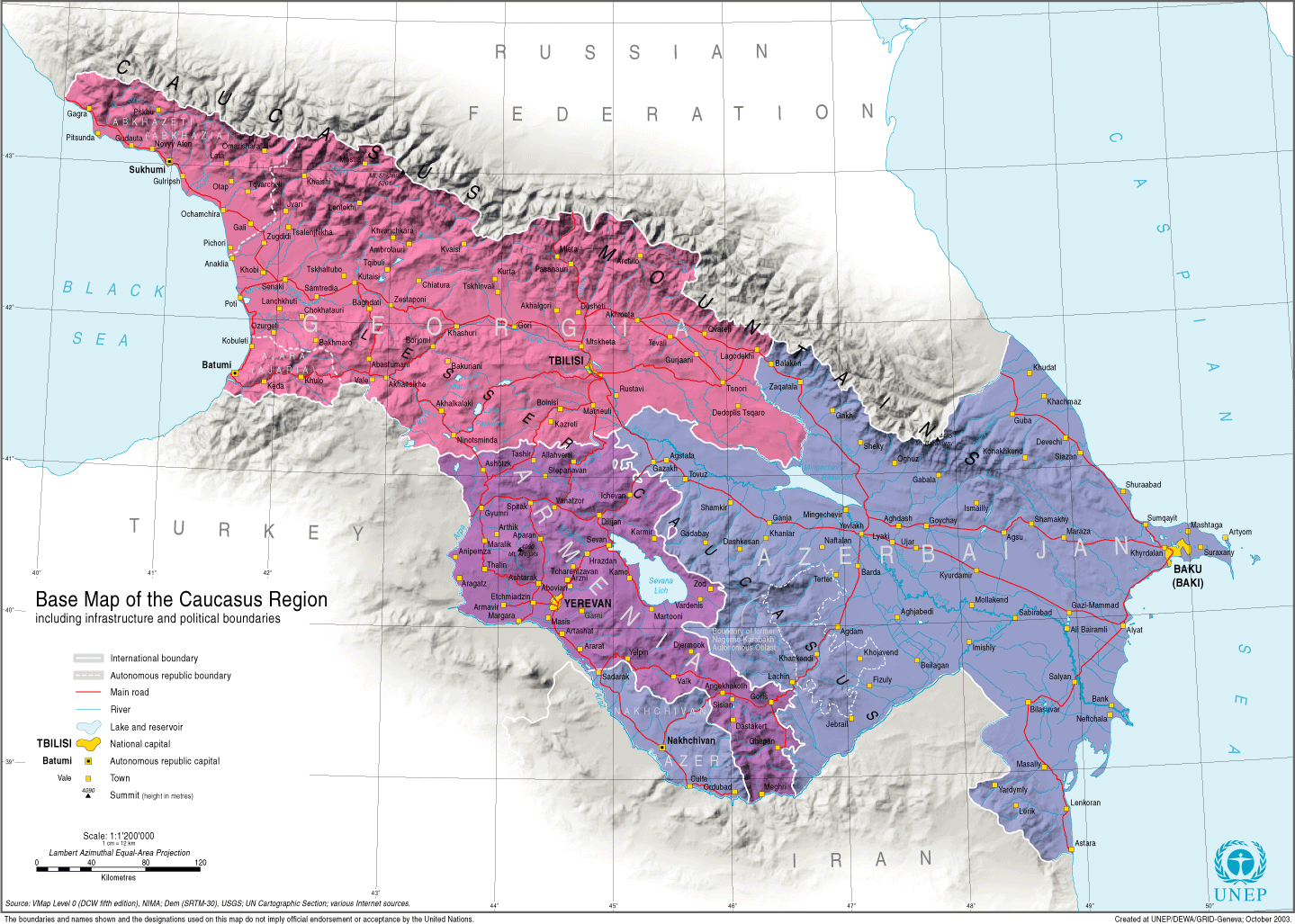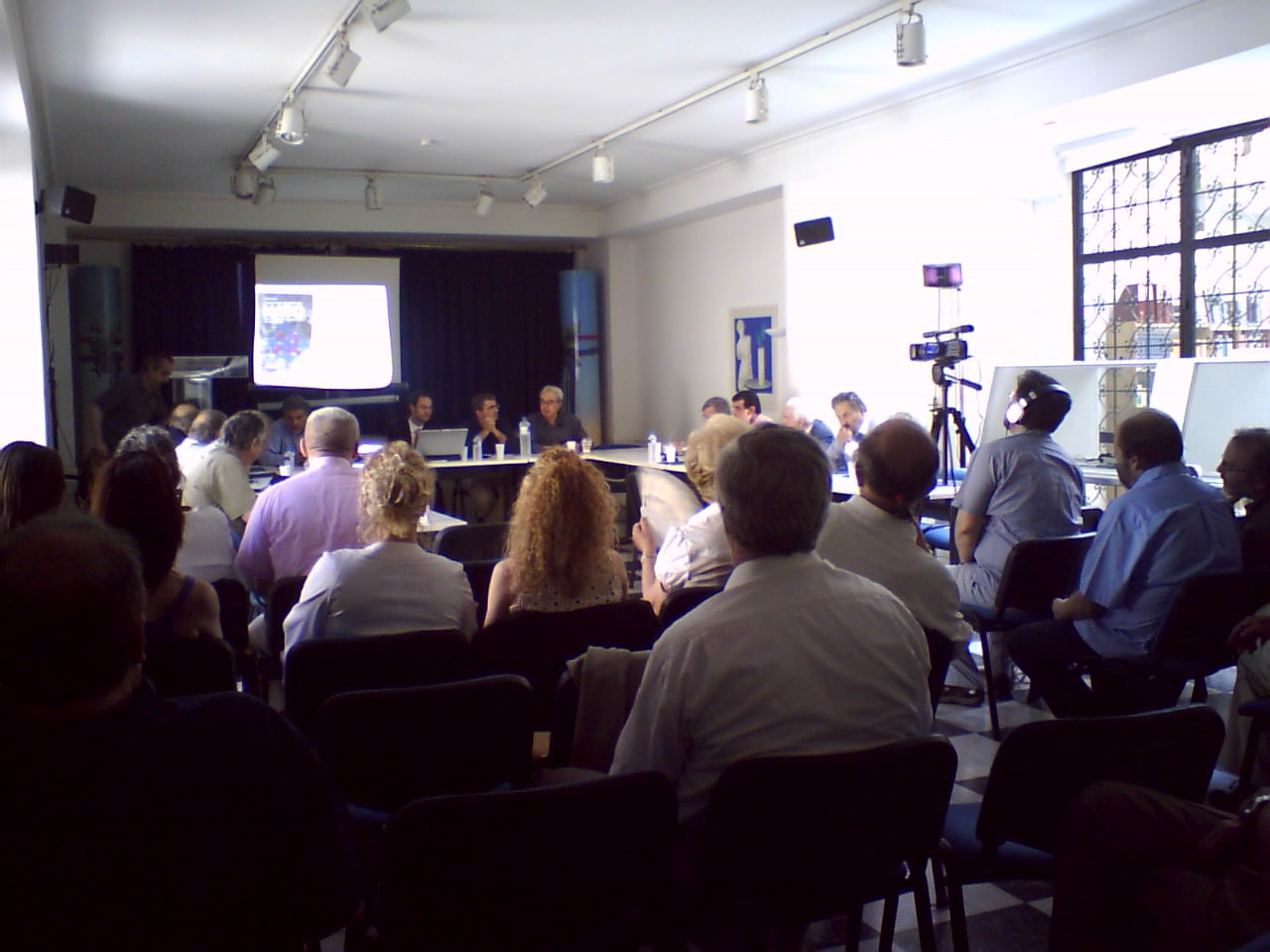γράφει ο
Richard GiragosianSince his inauguration less than two months ago, Armenian President Serzh Sarkisian has been hobbled by a daunting set of challenges, ranging from internal political tension that shows little sign of dissipating to a looming economic crisis driven by sharp price rises for food and energy that is only expected to worsen in coming months.
Yet even against this backdrop of internal challenges, there have been recent signs suggesting a possible new opportunity for a breakthrough in Armenia's strained relationship with its western neighbor, Turkey. Even before his election as president, Sarkisian outlined his vision of how Armenian-Turkish relations could be positively transformed by Turkey's admission to the EU. In an article published in December 2006 in "The Wall Street Journal," and again in an interview with the "Financial Times" one year later, Sarkisian expressed support for Turkey's bid for EU membership, albeit for purely pragmatic geopolitical reasons, suggesting that EU membership would make Turkey "more predictable" and thus strengthen Armenia's national security.

In a positively worded message on February 21, Turkish President Abdullah Gul -- one of the first foreign heads of state to congratulate the new president -- expressed the hope that Sarkisian's election victory "will permit the creation of the necessary environment for normalizing relations between the Turkish and Armenian peoples, who have proven over centuries they can live together in peace and harmony." "I sincerely hope that...an atmosphere based on reciprocal trust and cooperation can be established that will contribute to regional peace and prosperity," Gul added. A subsequent letter from Turkish Prime Minister Recep Tayyip Erdogan and Foreign Minister Ali Babacan last month similarly noted the need for a new "dialogue" with Armenia.
In response, the new Armenian prime minister, Tigran Sarkisian (no relation to the president), was quick to "reaffirm" Armenia's desire for a "constructive dialogue and the establishment of normal relations without preconditions." This was also echoed in a second formal response from Armenian Foreign Minister Eduard Nalbandian, who admitted that earlier efforts to bring about an Armenian-Turkish rapprochement "failed," and called for a fresh approach and "new style" to be followed by unspecified "positive steps." Speaking in Brussels on May 28 at a session of the North Atlantic Council, Nalbandian again stressed that Armenia sets no preconditions for the normalization of relations with Turkey. He further noted that the preamble to the Individual Partnership Action Plan (IPAP) Armenia signed with NATO in 2005 affirms that "Armenia seeks normalization of relations with Turkey and is determined to pursue constructive dialogue, including direct talks with Turkey, towards this end."
At one level, the exchange of letters and professed readiness to embark on a new dialogue seemingly reflect a renewed sense of optimism, especially as Armenia has reiterated that it has no preconditions to any normalization of relations with Turkey. Yet such optimism -- if indeed it is sincere, and not pro forma -- could prove misplaced in light of a sobering record of earlier half-hearted diplomatic initiatives and ill-fated unofficial attempts at forging a common ground between the two countries.
Over the past 15 years, there has been only minimal contact between Armenia and Turkey. That absence of formal relations stems from two main impediments: Turkey's support for Azerbaijan in the conflict over Nagorno-Karabakh and its reaction to attempts by the worldwide Armenian diaspora to obtain broad international recognition of what they call the Armenian genocide of 1915. These two factors have come to dominate Turkish policy regarding its small neighbor, resulting in the imposition of an economic blockade in 1993 and a stubborn refusal to even establish formal diplomatic relations.
But to date Turkey has gained little from that policy and, in fact, has actually lost significant diplomatic and economic opportunities. Moreover, many Turkish officials have privately admitted that Turkish foreign policy regarding Armenia has become far too limited and seemingly hostage to Azerbaijan's implacable opposition to any improvement in relations with Armenia.
Despite the poor record of past initiatives, the potential benefits from even the most basic and rudimentary form of engagement are clear for each country. For Turkey, opening its closed border with Armenia would constitute a new strategic opportunity for galvanizing economic activity in the impoverished eastern regions of the country, which could play a key role in the economic stabilization of the already restive largely Kurdish-populated eastern regions and thus address a significant national security imperative of countering the root causes of Kurdish terrorism and separatism with economic opportunity.
Likewise, an open border with Turkey would offer Armenia not only a way to overcome its regional isolation and marginalization, but also a bridge to larger markets crucial for economic growth and development. In addition, the commercial and economic activity resulting from opening the Armenian-Turkish border would foster subsequent trade ties between the two countries that, in turn, would lead to more formal cooperation in the key areas of customs and border security. And with such a deepening of bilateral trade ties and cross-border cooperation, the establishment of normal diplomatic relations would undoubtedly follow.
Thus, the opening of the closed Armenian-Turkish border could not only bring about a crucial breakthrough in fostering trade links and economic relations, but may also serve as an impetus to bolster broader stability and security throughout the conflict-prone South Caucasus.
Yet the divide between potential and reality seems as wide as ever, as participants at a one-day conference on Armenian-Turkish relations in Yerevan on May 20 acknowledged. Organized by the Yerevan-based Analytical Center on Globalization and Regional Cooperation with the support of the Eurasia Partnership Foundation and the U.S. Agency for International Development, the conference brought together several leading Armenian and Turkish experts and analysts for an open discussion of the prospects for a normalization of relations between the two countries and helped to dispel some of the more disturbing stereotypes of Turks that have come to drive Armenian perceptions.
As one of the participants later wrote in the May 22 issue of the "Turkish Daily News," the conference was able to forge a shared recognition of "a lack of clarity and a gap between declarations and practice on both sides." Highlighting a new sense of optimism, Diba Nigar Goksel, a senior analyst at the European Stability Initiative and the editor in chief of the English-language "Turkish Policy Quarterly," went on to stress that "it also seemed hopeful that the sides could move closer to a shared view of history, as long as they set reasonable expectations," adding that "sometimes it takes a trip eastward to appreciate how far Turkey has traveled and the untapped potential it has for more influence."
But at the same time, the conference seemed to confirm that any breakthrough in Armenian-Turkish relations hinges above all on timing, given that in the past each side has on more than one occasion extended a cautious hand to the other, but those overtures have never coincided. This divergence has also assumed a new political dimension, as the new Armenian government is in desperate need of a strategic breakthrough in foreign policy as it struggles to overcome the ongoing internal political crisis.
Yet even this imperative for progress from the Armenian side is not enough to overcome the stalemate in relations, as the truly revolutionary degree of change now under way within Turkey suggests little likelihood for a breakthrough. And while the dynamic process of redefining and reassessing the very tenets of Turkey's national identity and strategic orientation may present a new opportunity for modifying its failed policy toward Armenia, Turkey seems wary of alienating its traditional ally, Azerbaijan. As recently as May 26, the Turkish daily "Zaman" quoted Economy Minister Mehmet Simsek as saying that the border with Armenia will not be opened until Yerevan solves its problems with Ankara and with Turkey's "regional ally," Azerbaijan. Simsek added that Armenia has more to gain than Turkey from establishing "normal relations" between the two countries, and therefore Armenia should take the first step toward rapprochement.
Therefore, while it may seem attractive to blame Turkey for failing to seize the initiative and reap the benefits from a fresh approach toward Armenia, the real impediment lies in Turkey's desire to allay Azerbaijani concerns, at least in the short term.
Initially published at RFE/RL
Copyright (c) 2008. RFE/RL, Inc. Reprinted with the permission of Radio Free Europe/Radio Liberty, 1201 Connecticut Ave., N.W. Washington DC 20036.
Notice: The opinions expressed in this post does not necessarily reflect the opiniom and the policies of this blog


